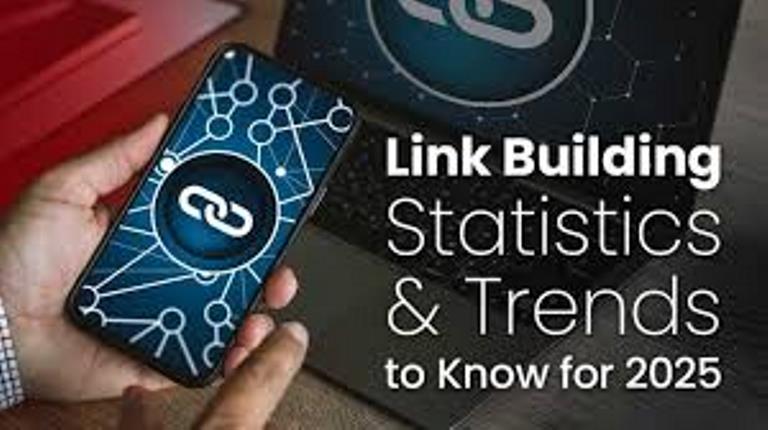
Table of Contents
What Is Link Building?
Link building is acquiring hyperlinks from other websites to your own, forming the backbone of how the web operates and how users discover new content. These hyperlinks, often called “backlinks,” are also critical indicators for search engines, helping evaluate a site's authority, trustworthiness, and relevance. In an era where competition for online visibility is fierce, enlisting reputable link building services can be instrumental in crafting an authoritative link profile, streamlining the process of scoring high-quality backlinks that move the SEO needle.
Link building shapes how users and algorithms navigate the web when executed thoughtfully. The process has become more sophisticated, evolving beyond simple directory submissions or reciprocal link exchanges. Today’s strategies emphasize genuine connections, content value, and ethical outreach—a trend expected to grow as search engines refine their ranking algorithms.
Why Does Link Building Matter for SEO?
Backlinks are core ranking signals in search algorithms. According to Google’s guidelines on SEO and links, the quality and quantity of links pointing to a webpage contribute heavily to its perceived authority and likelihood to rank for competitive queries. When reputable sites link to your domain, search engines interpret it as endorsing your content, strengthening your site’s relevance and visibility.
The benefits go beyond rankings. A solid backlink profile can drive referral traffic, increase brand trust, and open new channels for business partnerships. Earning these authoritative signals becomes critical for sustainable online growth as search competition intensifies.

Current Best Practices in Link Building
Link schemes, paid links, and manipulative tactics are risky and can harm your rankings. The only path to long-term success is focusing on ethical outreach and adding value.
The Role of Content in Modern Link Building
High-quality, engaging content remains the engine of link earning. Whether you produce blog posts, whitepapers, videos, or interactive tools, the objective is to create compelling resources that others naturally want to cite or reference. For instance, a comprehensive tutorial that solves common problems or a research-driven case study often attracts backlinks from reputable industry publications.
The focus should be on addressing the audience’s needs, providing original perspectives, and delivering insights not readily available elsewhere. Ensuring your content is shareable, easily discoverable, and visually appealing can increase your chances of organic link acquisition.
Emerging Trends in Link Building
Search algorithms and digital ecosystems constantly shift, leading to new link-building approaches. Digital PR is becoming central, focusing on earning online media placements by crafting newsworthy pitches, original research, or thought leadership pieces. Podcast guesting, unlinked brand mention reclamation, and building resources for community or industry compilation pages are rapidly gaining popularity.
As reported by Search Engine Journal, successful practitioners are embracing these trends by prioritizing authentic relationships, thought leadership, and mutually beneficial partnerships. This evolution ensures that link building supports broader reputation management and brand-building objectives rather than aiming for algorithmic gains.
Common Link Building Challenges
Overcoming these challenges requires creativity, a willingness to innovate, and persistent outreach efforts. Tools and analytics platforms are essential in streamlining prospecting and tracking the quality of acquired links.
Measuring Link Building Success
Tracking and reporting link-building progress is crucial for understanding ROI and guiding future efforts. Key metrics to monitor include:
Using web analytics and SEO platforms, you can attribute positive changes in rankings or traffic directly back to your link-building campaigns. This data-driven approach allows for continual refinement as search algorithms and best practices evolve.
Link Building in the Future
The future of link building is guided by authenticity, value, and ethical practice. As search engines become more adept at assessing intent, trustworthiness, and genuine endorsements, the importance of building authentic relationships and publishing valuable resources will only increase. Automation and AI may help surface new opportunities, but the core of successful link building will remain rooted in human connection and transparency.
Expect increased emphasis on strategic collaborations, thought leadership, and digital PR initiatives that support holistic brand growth. By staying adaptive, focusing on quality, and putting audience needs first, businesses can thrive amid continual changes to the SEO landscape.
Conclusion
As the digital landscape evolves, the importance of building meaningful, high-quality links grows. Modern approaches move beyond sheer volume, focusing instead on authenticity, relevance, and long-term value. Businesses that prioritize relationship-building, credible partnerships, and audience-centered content will stand out in a crowded online space. Emerging trends such as AI-driven outreach, niche authority building, and integration with broader digital strategies will play pivotal roles in shaping tomorrow’s practices. While algorithms will inevitably change, the fundamental principle remains clear: links that add genuine value and foster trust will always hold weight. Organizations can ensure their digital presence remains resilient, visible, and positioned for sustainable growth by staying agile, embracing innovation, and aligning link-building with broader brand objectives.

This post has been published by the admin of our website, responsible for content management, quality checks, and providing valuable information to our users.

